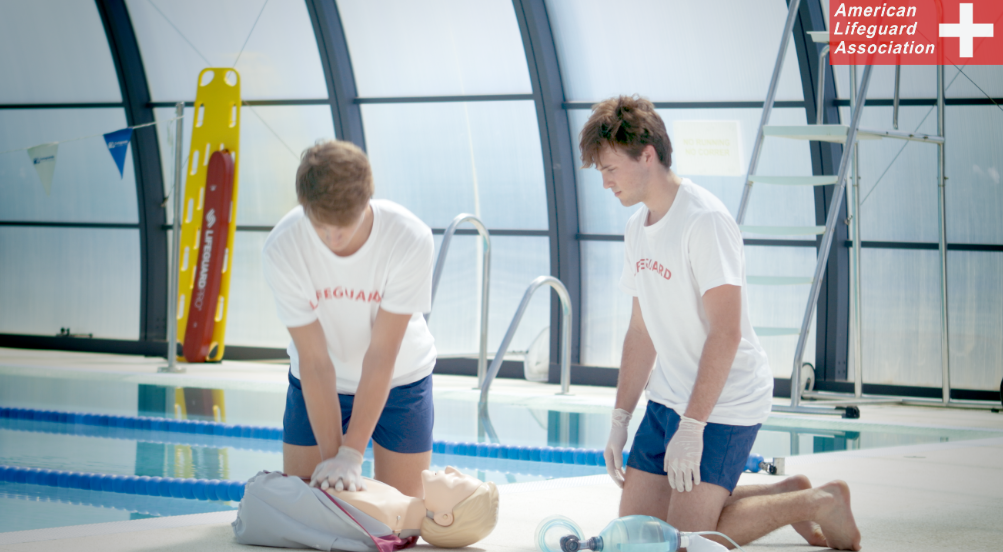
Lifeguard training is an essential program that equips aspiring lifeguards with the skills and information they need to prevent and respond to aquatic emergencies. This training covers different regions, including water rescues, CPR (cardiopulmonary resuscitation), first aid, and how to deal with emergencies in aquatic environments.
After finishing the program, members should breeze through both composed and practical assessments to become certified.
Factors That Affect the Length of Lifeguard training
- Course Arrangement (In-Person or Blended)
The arrangement where lifeguard training is conveyed can essentially influence the duration of the program. Most programs are presented in two arrangements:
- In-person Training: Typically training courses are led completely in person. These typically comprise of both classroom guidance and involved pool meetings. Because of the in-person nature, such programs are typically more limited long, taking around 3 to 4 days to complete.
- Mixed Learning: This is a blend of web based learning and in-person skills practice. In mixed courses, members complete theoretical illustrations online at their own speed, trailed by in-person meetings to foster practical rescue and first-aid skills.
Since the web-based piece can be completed over a longer period, the in-person meetings might take simply 1 to 2 days. However, the all out duration of the program may be somewhat longer due to the adaptability of the web-based part.
- Types of Certification
The kind of lifeguard certification you expect to get can likewise impact the duration of the program. Fundamental lifeguard training typically requires close to 25 hours, yet specific courses, for example, waterfront lifeguarding or water park lifeguarding, can add a couple of additional hours to the timetable.
These particular certifications require additional training for special aquatic environments, making the course duration longer by a couple of hours or even an entire day.
- Re-certification versus Initial Certification
On the off chance that you’re now a certified lifeguard and are hoping to recharge your certification, the interaction is much faster. Lifeguard re-certification courses commonly last around 8 to 10 hours, contingent upon the association. This is altogether more limited than initial training since re-certification centers around invigorating existing skills and information instead of showing new ones.
Lifeguard training Prerequisites
Before signing up for the best American lifeguard classes and certification, members should meet specific prerequisites to ensure they are physically and mentally ready. The most well-known requirements include:
- Age: Most lifeguard training programs expect members to be somewhere around 15 years old. Some high level certifications, for example, waterfront lifeguarding, may require a base age of 16.
- Swimming Skills: A solid ability to swim is essential. Trainees should have the option to swim a specific distance, tread water for a predefined period, and perform timed water-based undertakings like recovering a load from the lower part of the pool.
Meeting these prerequisites will permit you to enter the program without delays, making the interaction smoother and more proficient.
Additional Training Components
Notwithstanding center lifeguard skills, lifeguard programs frequently incorporate additional components, for example,
- First Aid and CPR Certification: These are critical skills for responding to emergencies, in water as well as ashore. The first aid and CPR components of the training are essential for getting certification and may take up to 4 to 6 hours of the all-out course time.
- Emergency Situation Drills: These practical meetings permit trainees to rehearse life-saving techniques in recreated emergency circumstances, for example, suffocating, head and neck injuries, and oblivious casualties. These drills are pivotal for growing speedy decision-making skills.
Finding the Right Lifeguard Training Program
Lifeguard training programs are presented by different organizations the nation over while the fundamental structure continues as before, you might need to contrast course organizations and durations with find the one that turns out best for you.
Additionally, numerous public venues, schools, and aquatic facilities collaborate with certified lifeguard organizations to offer training locally, making it more straightforward to track down programs in your space.
Last Considerations: Lifeguard training with the American Lifeguard Association
While searching for a respectable lifeguard training supplier, the American Lifeguard Association (ALA) is one of the top decisions. The ALA offers complete lifeguard training programs that meet public guidelines and equip members with the skills important to deal with a large number of aquatic emergencies. Their programs are perceived all through the US, ensuring that your certification will be generally acknowledged.


